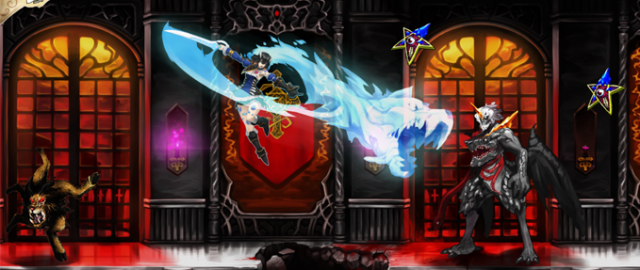
Those following the video game industry over the last couple of years know just how big a role Kickstarter has played in this era of gaming. The crowdfunding website has been a significant boon to gamers looking for genre titles and franchises that have all but disappeared. So-called “spiritual successors” like The ’90s Arcade Racer and Yooka-Laylee have found funding by appealing to nostalgic fans looking to fill those particular voids. Unfortunately, not every promising Kickstarter campaign is assured success. Despite strong word-of-mouth and critical reception, games like Poi have failed to find the funding needed to reach their goals. It raises the question: “Why do some campaigns seem to find a lot more success than others?”

Overall, the crowdfunding process has been quite beneficial to both fans and indie developers. As time passes, however, some questionable practices have hurt the faith of donors. A lack of openness regarding donations has left many wondering how their money is being spent, and that threatens to undermine the entire crowdfunding process. There have been few stronger examples of this than Comcept’s recent campaign for Red Ash, a spiritual successor to Mega Man Legends. While fans had been clamoring for a new entry in the franchise since Capcom cancelled Mega Man Legends 3 on Nintendo 3DS, Red Ash‘s Kickstarter campaign failed to garner much interest. Based on the success of Comcept’s campaign for Mighty No. 9, another Mega Man-esque title, the success of Red Ash seemed all but guaranteed. Instead, the campaign failed to meet its modest, $800,000 goal. Red Ash might have seemed like a sure thing, but it’s easy to see where it started to go wrong, and how campaigns like these can be injurious to the process.
When the Red Ash Kickstarter campaign first launched, console owners immediately had reason to be skeptical. $800,000 in donations would have guaranteed a PC version, but Comcept was less clear regarding which consoles Red Ash would appear on, if funded. The campaign had a “console version” tier goal, but the consoles the game would appear on would be determined based on backer demand. There are more than a few reasons that this raised the eyebrows of potential donors. The company was asking fans to give money to a campaign with no guarantee that their console of choice would be selected. Red Ash is far from the first Kickstarter campaign to ask fans to take such a leap of faith. Koji Igarashi’s campaign for Bloodstained: Ritual of the Night also put Nintendo fans in a difficult situation by making a Wii U version one of the highest tier goals in the campaign. If Wii U owners donated and the project was funded but the Wii U version was not, those donations would have went to a game that the donors didn’t get to play. Luckily for Nintendo fans, the game was more than able to achieve the needed funding. At least in the case of Bloodstained, potential donors knew that the Wii U version would definitively happen if the funding reached a certain level. The campaign for Red Ash offered no such guarantees, and this likely hurt the amount of money that the campaign brought in.

That isn’t the only peculiar thing about Red Ash‘s campaign, however. It started to seem unlikely that the game would arrive at all until Fuze Entertainment announced that it would pick up publishing duties. While Kickstarter can provide the majority of funding for smaller games, bigger titles cannot survive on those funds alone; the cost of game development is far too high. Publishers regularly scoop up games funded through Kickstarter. Deep Silver will publish Mighty No. 9 and Bloodstained, for example. Those particular agreements were announced after their respective Kickstarter campaigns ended, however. That’s far more typical, as fan interest has been established, and the publisher can invest less funding. Sometimes, as in the case of Cross Reverie, the developer will actually take its game off Kickstarter once a publisher has gotten involved, as outside funding is no longer required. After Fuze picked up the publishing rights to Red Ash, Comcept chose to keep the game’s campaign going, promising that, if Red Ash met the initial $800,000 funding goal, that money would now go toward developing extra content for the game. Backers started to feel uneasy about the timing of the publishing announcement, and about how their money was being spent. Money that was initially donated to fund the game was now essentially being spent on DLC, without any form of consent from the donors themselves. As a result, the campaign actually lost money as donors pulled thousands of dollars in funding just days before the campaign was supposed to come to an end.
Pages: 1 2




 ShareThis
ShareThis





